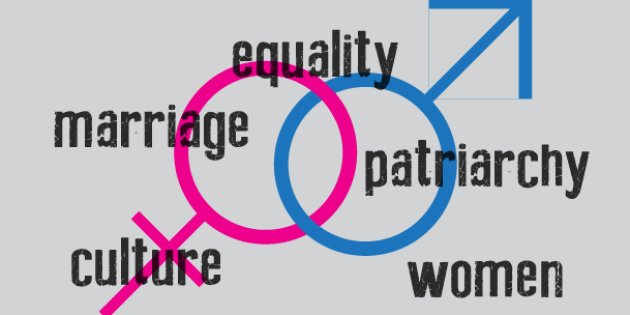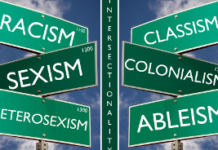If there is one thing I despise above all else, it is the feminist movement. No, it isn’t because I am a male chauvinist pig who thinks women exist to please men, and the women’s liberation movement gave them too much power. (Well, I might be a little chauvinist.) Feminism destroyed the nuclear family, leaving generations of children without fathers because women were “empowered” to believe they could have it all and didn’t need a man to support them. Before I get myself in trouble here I should clarify that not all broken families are because of feminism, and women are perfectly capable of having a career and raising children without a man. They have been doing it for decades. The question is how it affects children to grow up in a single-parent household. I grew up without either parent and was raised by my father’s aunt. She had three kids of her own, and by the time I was six, she and her husband were getting divorced. Over the years she would invite different men whom she became involved with to move in. This had devastating consequences on her own children who grew up with many behavioral and emotional issues. This isn’t to mention the issues I grew up with because my whole life was nothing but one broken family after the other, but that is a story for a different time.
Today’s feminist movement is leading to irreversible problems that are turning society upside down. First, the current generation of young women is flat-out rejecting ideas of traditional marriage and raising children. According to an article entitled “We are Happier on Our Own,” young women are growing up in the shadows of what they call, the lost generation of feminism. Like a typical feminist, the writer blames men for the predicament women found themselves in, which even the writer admits, was created by the “women can do it all mentality.” She states that today’s young woman grew up in an environment where the mother was expected to have a career, raise the children, and take care of all the household chores. Ironically, she goes on to claim this is what caused a generation of men who do not know how to equally contribute to a household, or live self-sufficient lives.
I think there is some truth to what the writer is saying, in some aspects. I have been married for twenty-six years and raised two daughters. I have and do, contribute to what needs to be done. I can’t pretend, however, that my own wife doesn’t take up most of the household chores. In my later teenage years, I moved in with my grandparents, who by the way, were married for over six decades. Their marriage was very traditional in the sense that my grandmother did all of the housework while my grandfather ran a business and spent most of his off time working in the yard. That was certainly a relationship with an equal division of labor. It would just depend on who is defining that term. The one thing about that marriage that stands out today is that it worked. It lasted. They struggled, for sure, but in the end, they grew to be a little old man and women who appreciated each other for who they were and what qualities they brought to the marriage because of what they were. One man and one woman.
The problem with the article being discussed is that the writer doesn’t dive into the realities of the feminist movement. Feminism dates back to the early 1800s and started as a movement meant to address issues that affected the quality of life for women. Let’s face it, there was a time when women were not treated equally. But even then, there was nothing in the movement that rejected what was traditionally understood about the role women played in society. Hold on to your hat now, that role was playing mother and raising a family. Many of the problems that the writer discusses came about, as she even admits, with the “woman can do it all without a man” mentality. This idea took root not because men treated women differently and as a result, women organized to fight inequality. No, it came about because of the little idea implanted in their heads suggesting that the role they were playing as mother and wife was a form of gender oppression and there was more a woman could do with her life than stay at home and serve the needs of men. This idea was planted by a woman who, according to LewRockwell.com, had strong ties to the communist movement and worked to not only redefine women’s role in society but undermine traditional masculinity as well. This idea came from a book that even today’s modern feminist admits is the “book that started it all,” Betty Friedan’s, The Feminine Mystique.

“The problem lay buried, unspoken, for many years in the minds of American women. It was a strange stirring, a sense of dissatisfaction, a yearning that women suffered in the middle of the twentieth century in the United States. Each suburban wife struggled with it alone. As she made the beds, shopped for groceries, matched slipcover material, ate peanut butter sandwiches with her children, chauffeuredCub Scouts, and Brownies, and lay beside her husband at night—she was afraid to ask even of herself the silent question—Is this all?”
Rockwell isn’t the only one claiming Friedan had a connection to the communist party. According to David Horowitz, she served as a professional propagandist for the communists for twenty-five years before publishing her so-called, groundbreaking book. This was published in the far-left-leaning magazine, Salon, no less in 1999. This ties the Feminist movement directly to Critical Theory. It was the theorists of the Frankfurt School, brought to America after the Nazis had taken over Germany, who started what we see today as the rejection of our traditional values under the guise that they are a form of oppression. According to an article called Rethinking Critical Theory and Qualitative Research, the final development of Critical Theory’s technique of critiquing society came about because the theorists, who were of course Marxists, to begin with, looked at America and came to the conclusion that we were not living up to our values of freedom and equality. They were the ones who looked at the traditional gender roles, for example, and called them a form of oppression for no other purpose than the push for “social change.”
What has this brought us? A generation of weak, feminized men for one thing. The author of “We are Happier on our Own” was right about that, however, she fails to realize it is generations of the movement she is enamored with that caused it. If she wants a society of men that are willing to stand and take responsibility for themselves, while being willing to contribute equally to the responsibilities of a committed relationship, it isn’t feminism she should be looking to. The issue of shared responsibility only became questionable when Critical Theorists began questioning it. Going back to my grandparents’ marriage, I think that is the true definition of shared responsibility. Sure, my grandmother took on the traditional role of raising the children and taking care of the house. My grandfather put countless hours into building a successful business and doing the upkeep of a beautiful homestead that they built together. Even in my marriage, my wife was able to stay home with the kids, which she says to this day, she is thankful for, until the economic troubles of the Obama era when she was forced to go back to work. We are going on twenty-seven years of a committed relationship at a time when most end after eight. What is the difference? My wife is a wonderful woman who loved being a mother because, brace yourself now, that is what women are meant to do.
Women may very well live happier lives without children or marriage. Any quick google search on the topic will pull up all kinds of psychology articles which support this idea by saying unmarried women without children have less stress and more positive social connections. This makes sense because psychology itself is devoid of God and spirituality, and if there was a communist plot to destroy the family it would surely be embedded in the field. The problem is that it is only women in the west who are being beaten down by this idea. American women are being discouraged from having families while our borders are wide open to people who still have numerous children as part of their cultural identity. Is this done on purpose? Probably, and in the meantime, when we question it we get accused of being bigoted by the Critical Race Theorists who suggest we are only acting out of an interest to preserve our “whiteness” and culture of white supremacy. They don’t need to worry, today’s indoctrinated feminist has no interest in that. You have to wonder though, and this certainly isn’t a new question, what the modern feminist thinks about a movement that can’t define what a woman is, while at the same time, allowing men to compete and win, in women’s sports. What started as a movement to rebuke a male-dominated society has led to the idea that men can be better women, than women.
Of course, anyone who understands any of this knows that the end goal is the destruction of the male and female identity, in accordance with the goal of destroying the nuclear family. The real target is the uterus.
If you enjoyed this article perhaps you would enjoy my book on Critical Race Theory.
You can see the rest of my articles at www.defenseofournation.com.












![“[This title has been removed by independent compliance checkers.]”](https://globallibertymedia.com/wp-content/uploads/2021/08/download-4-100x70.jpg)











